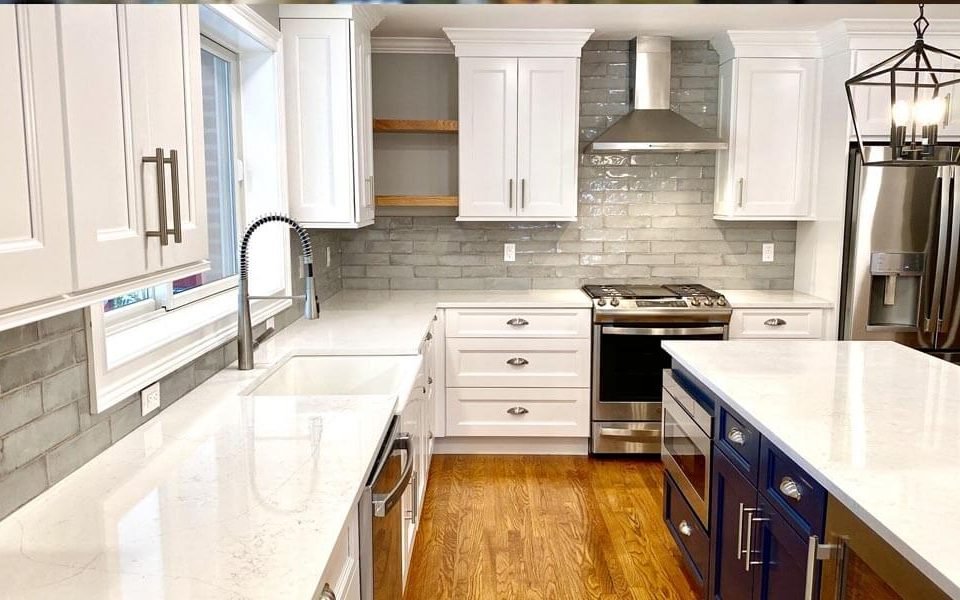Remodeling your home does not have to be an unbelievable dream. More and more average people are taking on the responsibility of performing remodeling tasks themselves to enhance the value of their home. If you are a self starter and interested in home remodeling, here are some of the best tips of the trade. This guide can help realize your home remodeling needs and make them happen.
Table of Contents
Have a Plan of Attack
The notion of home remodeling can be daunting, but the most successful people have a plan strictly laid out. Although we realize that unexpected things can occur, having a set plan in mind will help guide your through the process. Take time and research the type of renovation you intend on performing. Watching videos online and taking advice from contractors can help you manage your expectations and make a plan you can actually accomplish.
The worst thing that can happen to a DIYer is the realization that a project is too much for their skill set. This is the reason so many homes have renovation projects half way completed. A plan gives you perspective and a clear path for completion. Even professional contractors use a plan during every project, so take a page out of their book and plan the project carefully.
Think of the Value Added
Before swinging a hammer for the first time, consider the whole scope of the project and ask yourself one very important question. Will this project add value to your home? That question can be a difficult one to answer. Generally speaking, things that add value to a home are adding additional usable space such as an extra room, garage, or storage area. Additionally, updating a bathroom or kitchen can add considerable resale value, but may not be practical if you do not intend on selling. Carefully consider if the project is adding personal value to your family or may be adding to the overall monetary value of the property.
Know Your DIY Limits
As a DIYer, you may believe you can take on any project without compromise, but no one is super human. We all have limits to our personal abilities and there will always be attributes to home remodeling that should be left up to the professionals. Generally speaking, a DIYer can do a lot for a project, but they should hire professionals for HVAC, electrical, and plumbing work.
These areas can cause the potential for fires, devastating damage, and even can void your homeowner’s insurance. Many states require these areas to be accomplished by a licensed professional, so when it comes to these three key areas, always hire a licensed individual to do the job.
When adding special rooms, such as exercise rooms, take note of the things you might want to add. An exercise equipment would be a good addition. Nowadays, some of these euipments have been upgraded into simulators. Playing golf, for example, can be enjoyed in the comforts of your home by installing a golf simulator. It has minimum room requirements and can be easily installed. And like any other exercise equipment, find one that matches your personality and can cater to your needs.
Always Have the Right Permits
Some home remodeling jobs do not require a permit. Attributes like putting up a fence, or building a pole barn may not require a permit, but renovation jobs that alter the structure of your home will. Permits change depending on the area a home is being renovated in. Some states and regions are stricter than others and if you live in an HOA community, you must account for any requirements they may have for a building renovation project.
Purchasing the proper permits ensures the city, county, and state know what changes are being made to the property. It also protects the homeowner from issues with their insurance company if problems arise during the renovation. Neglecting to secure the proper permits can result in a decreased value in your property and difficulty selling in the future. You do not want to perform an unauthorized renovation only to have to completely destroy your hard work if you decide to sell the home.
Think About Financing Options
It is easy to say you want to add a room on to your home or renovate your kitchen, but once you begin the project, any money you save can quickly become depleted. Homeowners often turn to their financial institutions for help with renovation projects. Remortgaging your home or putting up some other form of collateral for a loan can help you have cash on hand to complete the project.
When thinking about finances, consider all aspects of the project. Seemingly small attributes such as nails and fasteners can quickly add up to a huge expense. Online home remodeling calculators can help you have a realistic view of what the project will ultimately cost you. Additionally, always add 20% to the total cost to contend with any unseen issues that will ultimately arise during the renovation.
Have the Right Tools
This seems like a no brainer for an experienced DIYer, but it needs to be stated. It takes more than swinging a hammer to perform home remodeling projects. Tools such as levelers, nail guns, tape measures, drills, and saws are among the most important tools you will use during any home renovation project. Keep your tools organized, charged, and available to avoid contending with delays. No one wants to wait on their drill to charge or have to run out mid project to buy a new leveler to ensure the room is actually level.
Start Smart
For those who are new to DIY projects, do not start off too large. Adding a room or completely renovating the bathroom can be a substantial project and starting with these larger projects might discourage you. Start smart by beginning with smaller projects. Start with building a fire pit in the back yard to get used to working with concrete or build the kids a play house to help you understand what it takes to build a structure. Starting smart helps you build upon your skills without becoming discouraged with a large project.
Home renovation is not for everyone, but if you are up for the task and do not mind getting your hands dirty, it can be very rewarding. There is nothing like standing back and looking at the completed project at the end of a renovation. Talk with your family about improvements you want to make and keep everyone involved. DIY projects can be an enjoyable family activity.










